TCT 2024 Late-Breaking Science Collection
Published: 17 October 2024
-
Views:
 2697
2697
-
Likes:
 7
7
-
Views:
 2697
2697
-
Likes:
 7
7
-
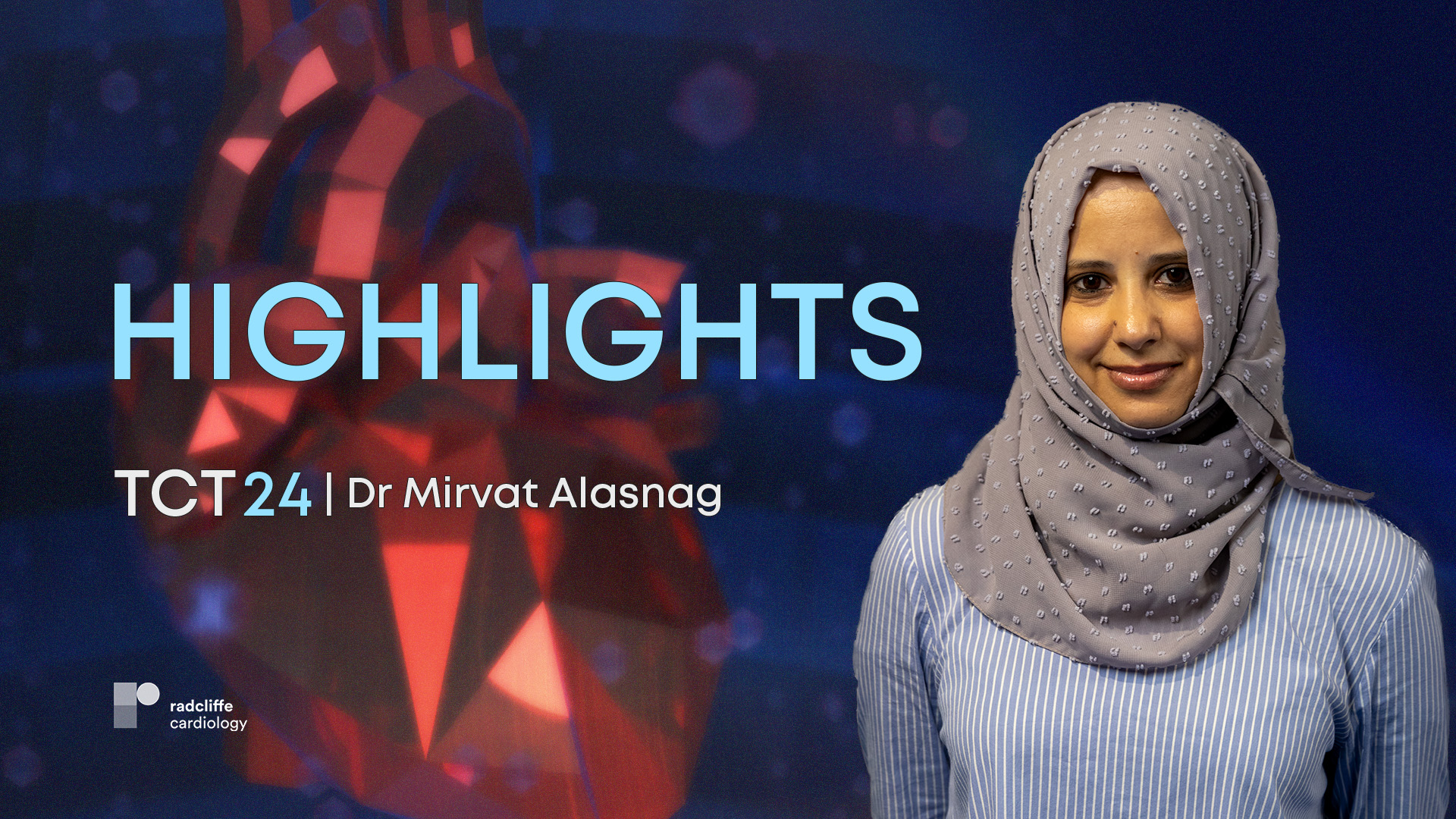 6m 24sPart 3 | Session 1 5 Trials That Will Change My Practice with Dr Mirvat Alasnag
6m 24sPart 3 | Session 1 5 Trials That Will Change My Practice with Dr Mirvat Alasnag -
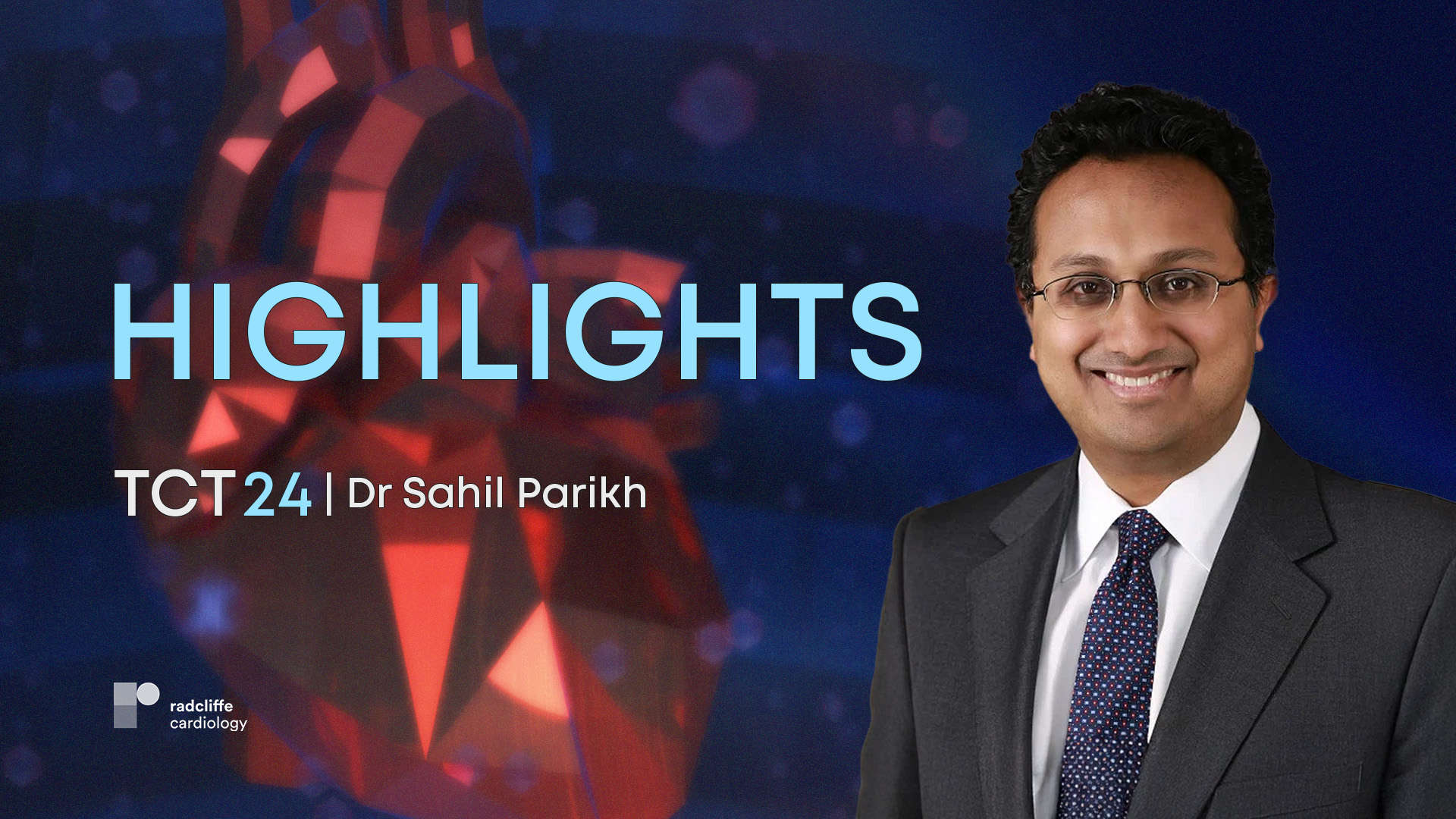 5m 1sPart 3 | Session 2 2 Trials That Will Change My Practice with Dr Sahil Parikh
5m 1sPart 3 | Session 2 2 Trials That Will Change My Practice with Dr Sahil Parikh
-
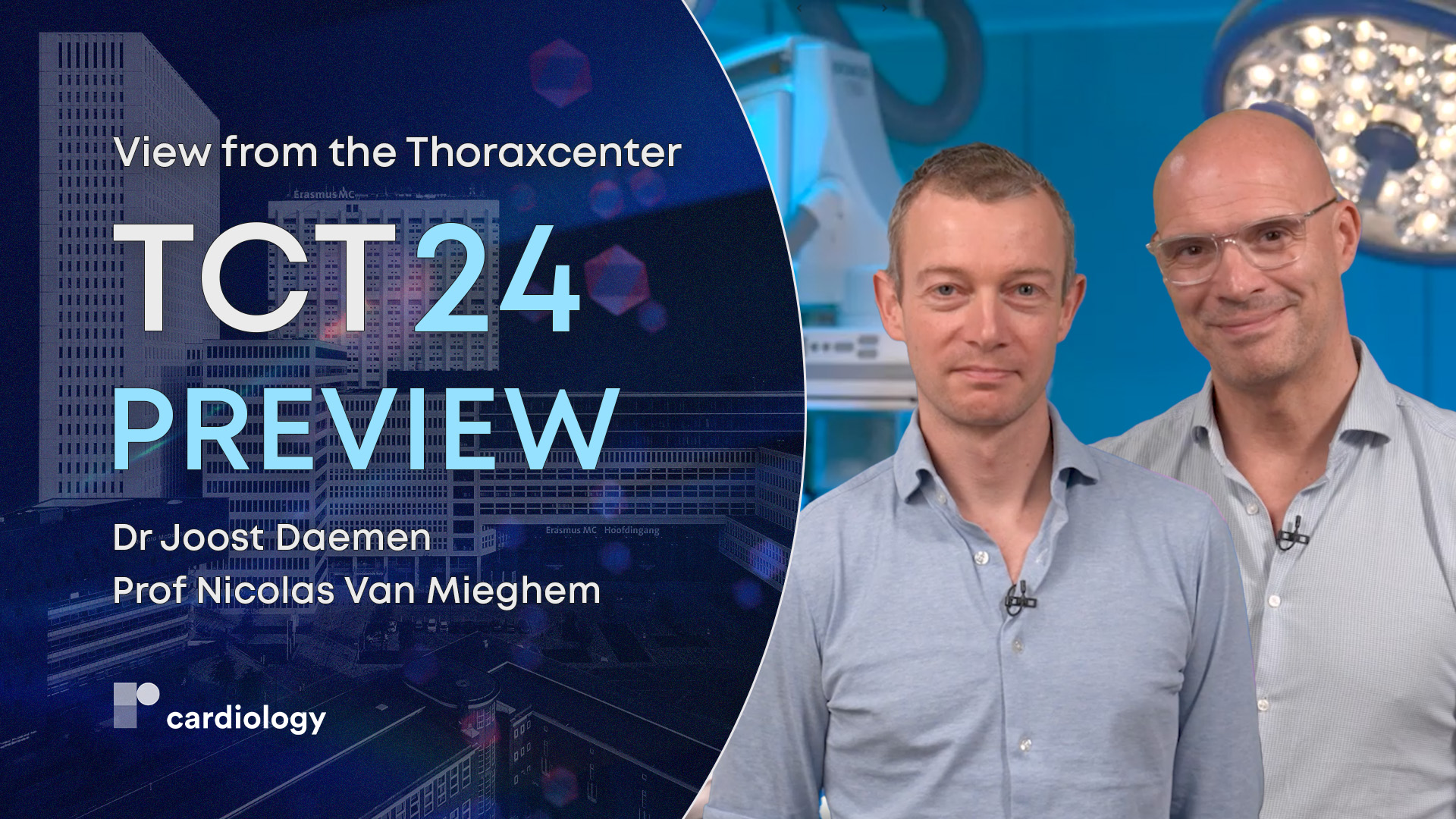 38m 7sPart 1 View from the Thoraxcenter: TCT 24 Late-breaking Preview Nicolas M Van Mieghem, Joost Daemen
38m 7sPart 1 View from the Thoraxcenter: TCT 24 Late-breaking Preview Nicolas M Van Mieghem, Joost Daemen
-
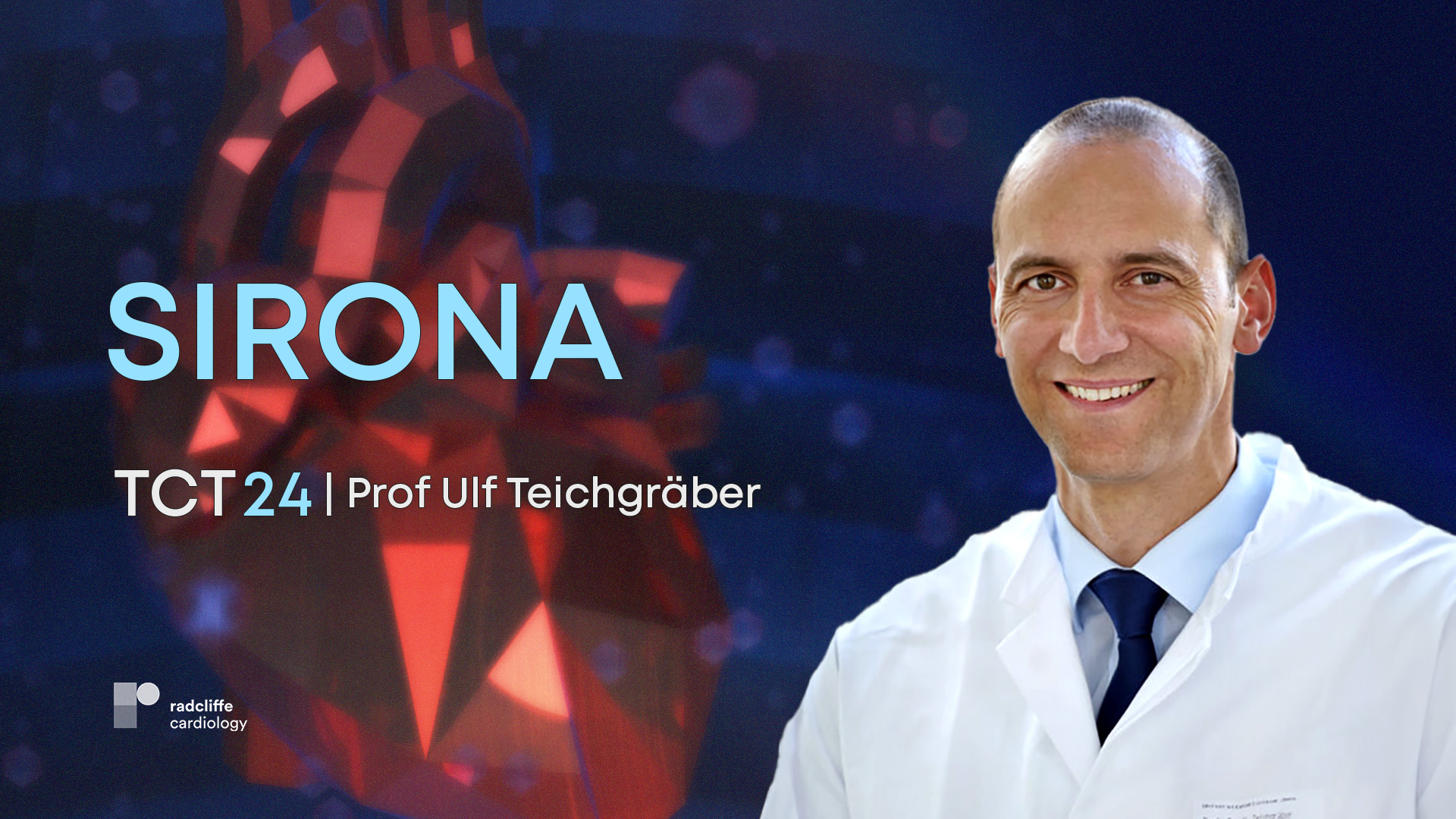 7m 10sPart 2 | Session 1 SIRONA: Sirolimus- vs. Paclitaxel-Coated Balloon Angioplasty in the Femoropopliteal Artery Ulf Teichgräber
7m 10sPart 2 | Session 1 SIRONA: Sirolimus- vs. Paclitaxel-Coated Balloon Angioplasty in the Femoropopliteal Artery Ulf Teichgräber
-
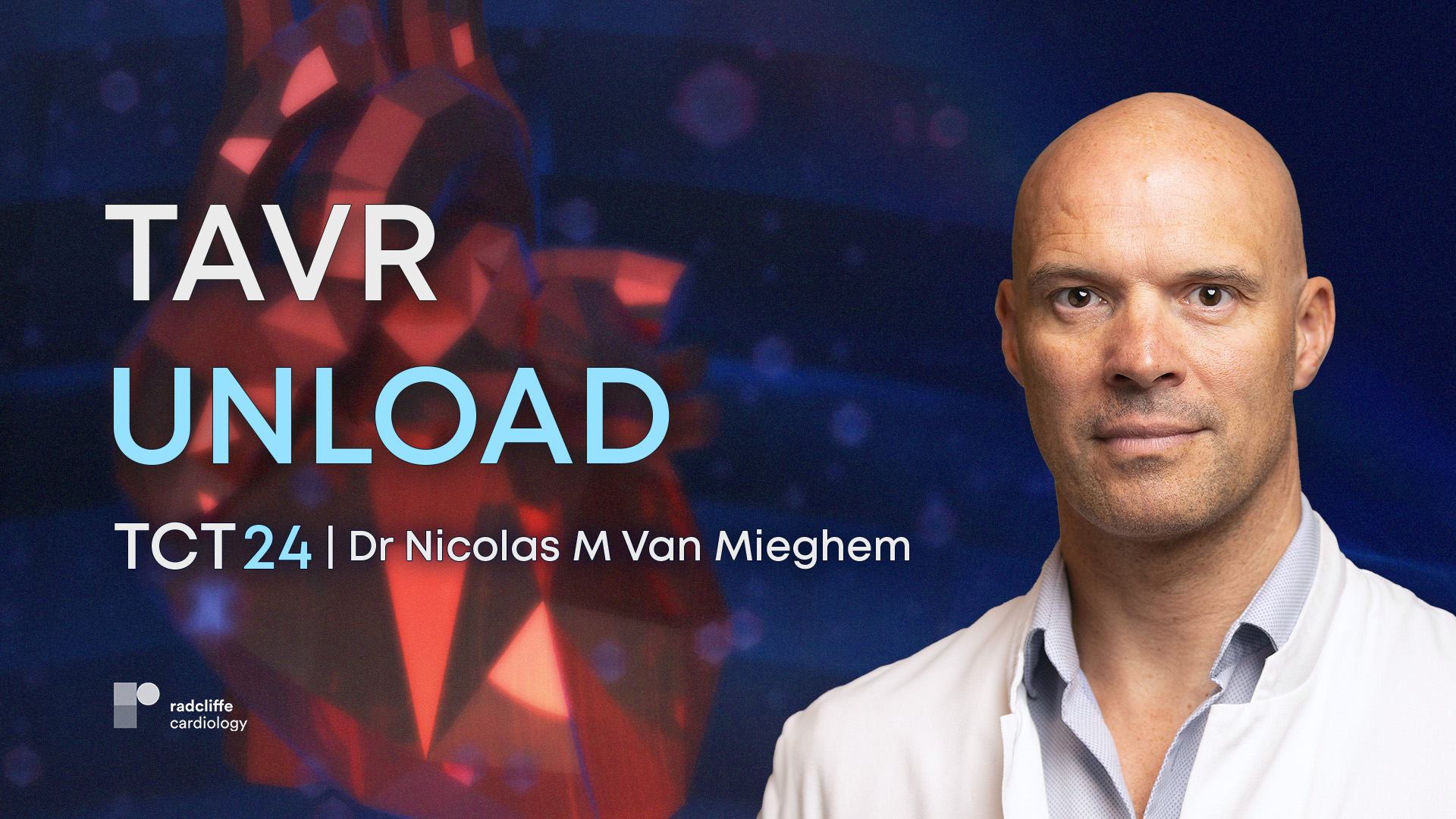 4m 10sPart 2 | Session 2 TAVR UNLOAD: Transcatheter Aortic Valve Replacement in Patients with Heart Failure and Moderate Aortic Stenosis Nicolas M Van Mieghem
4m 10sPart 2 | Session 2 TAVR UNLOAD: Transcatheter Aortic Valve Replacement in Patients with Heart Failure and Moderate Aortic Stenosis Nicolas M Van Mieghem
-
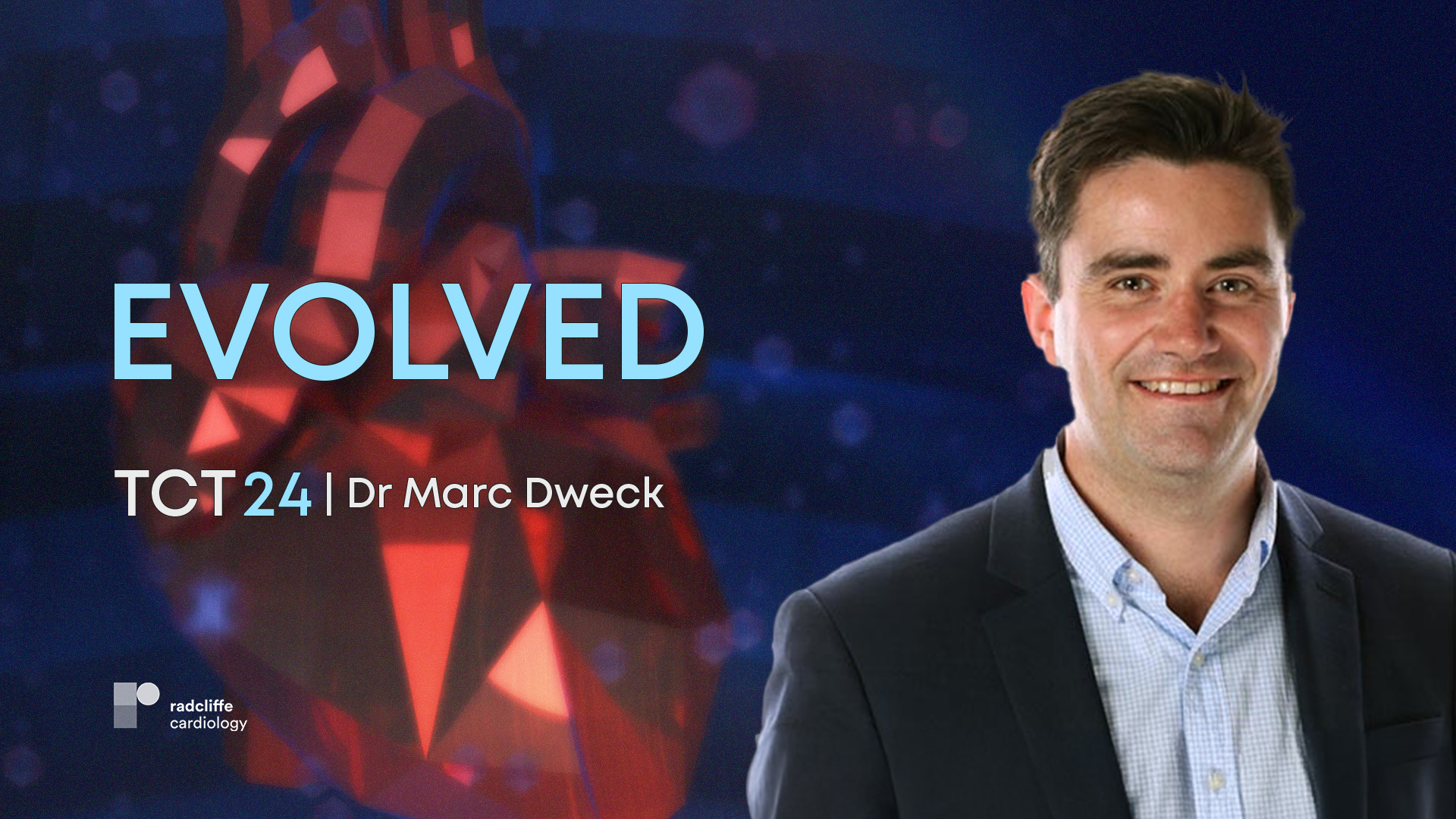 4m 19sPart 2 | Session 3 EVOLVED: Early Intervention in Patients with Asymptomatic Severe Aortic Stenosis and Left Ventricular Decompensation Marc Dweck
4m 19sPart 2 | Session 3 EVOLVED: Early Intervention in Patients with Asymptomatic Severe Aortic Stenosis and Left Ventricular Decompensation Marc Dweck
-
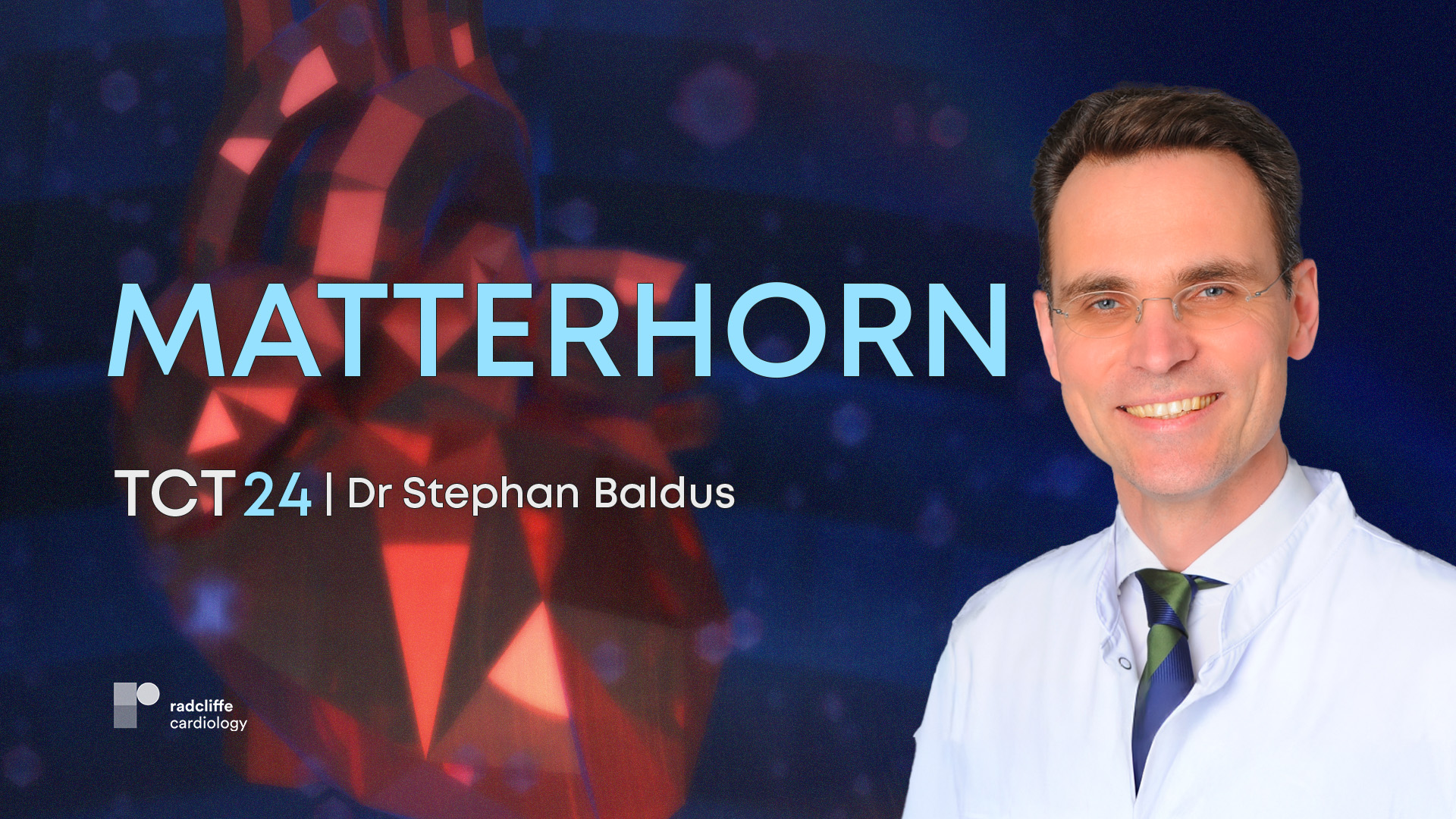 5m 36sPart 2 | Session 4 MATTERHORN: Transcatheter Repair Versus Surgery in Mitral Regurgitation Stephan Baldus
5m 36sPart 2 | Session 4 MATTERHORN: Transcatheter Repair Versus Surgery in Mitral Regurgitation Stephan Baldus
-
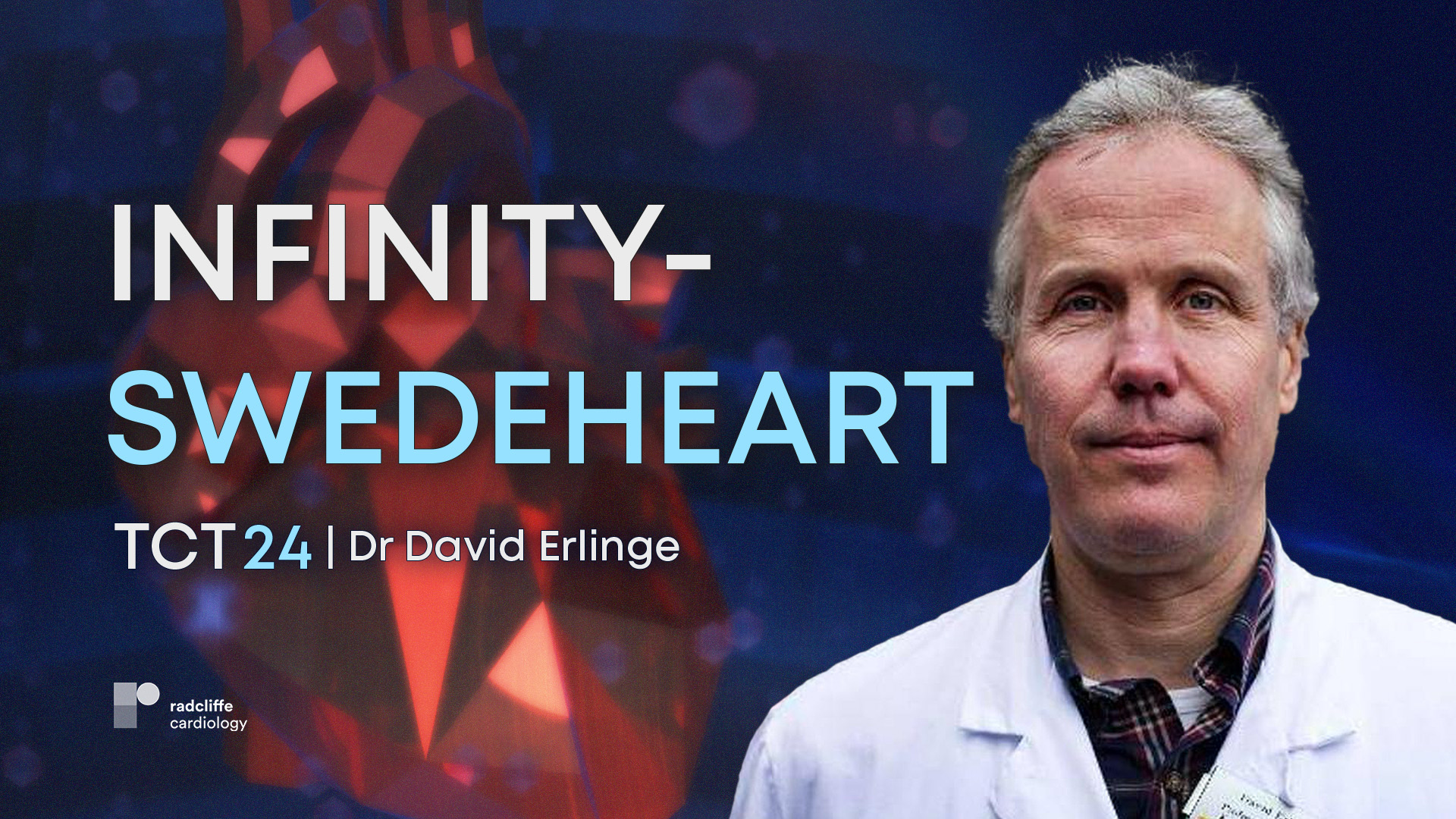 3m 34sPart 2 | Session 5 INFINITY-SWEDEHEART: DynamX Bioadaptor in Patients with Complex Lesions David Erlinge
3m 34sPart 2 | Session 5 INFINITY-SWEDEHEART: DynamX Bioadaptor in Patients with Complex Lesions David Erlinge
-
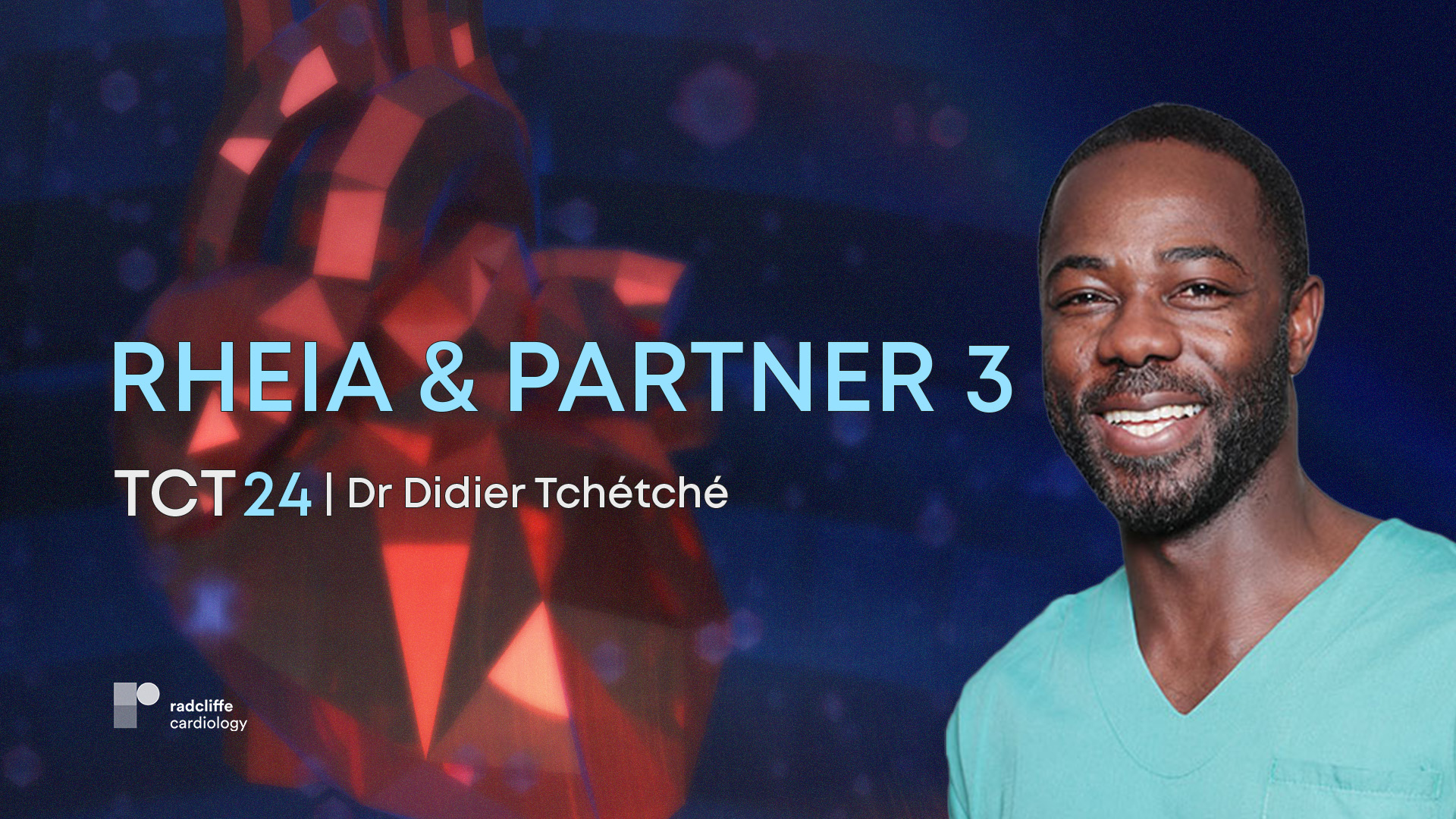 3m 43sPart 2 | Session 6 Pooled Analysis of the RHEIA and PARTNER 3 Trials: Transcatheter vs. Surgical Aortic Valve Replacement in Women Didier Tchétché
3m 43sPart 2 | Session 6 Pooled Analysis of the RHEIA and PARTNER 3 Trials: Transcatheter vs. Surgical Aortic Valve Replacement in Women Didier Tchétché
-
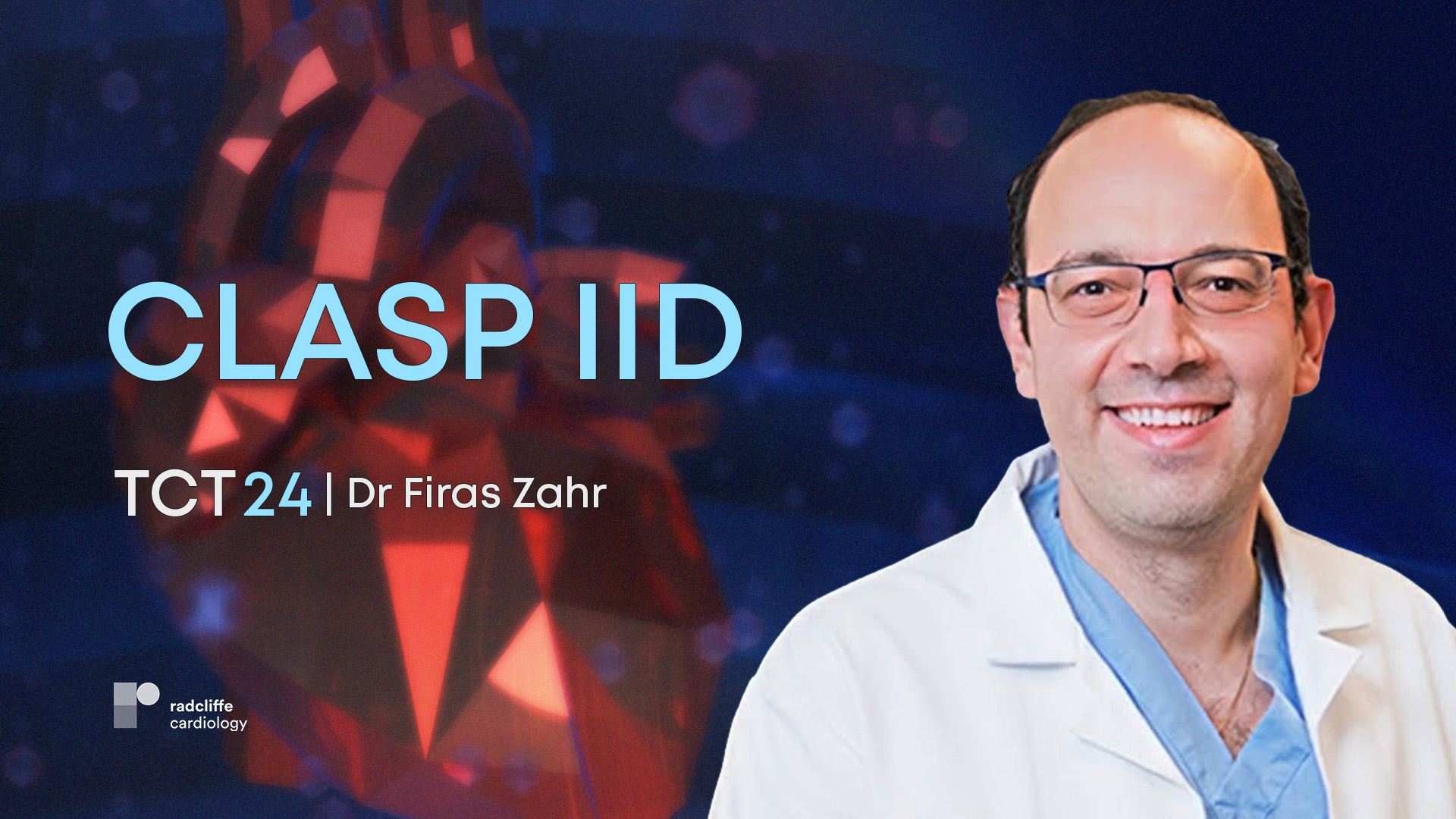 3m 33sPart 2 | Session 7 CLASP IID: Two-Year Outcomes of Transcatheter Edge-to-Edge Repair for Degenerative Mitral Regurgitation Firas Zahr
3m 33sPart 2 | Session 7 CLASP IID: Two-Year Outcomes of Transcatheter Edge-to-Edge Repair for Degenerative Mitral Regurgitation Firas Zahr
Overview
Keep informed with our video collection unveiling data from the Transcatheter Cardiovascular Therapeutics Conference in Washington. With expert insights on late-breaking trials and critical findings, you won't want to miss our #TCT24 coverage.
- For practice-focused reviews of the most anticipated trials, watch our recurring View From the Thoraxcenter series, hosted by Prof Nicolas Van Mieghem and Dr Joost Daemen (Thoraxcenter, Erasmus MC, Rotterdam, NL).
- Our short Expert Interviews with select faculty offer focused data analysis and take-home messages for practice.
- To delve deeper into insights on the most pertinent trials, catch our Highlights.
Dive into the latest cardiology research with our upcoming TCT Conference coverage.
More from this programme
Part 1
View From the Thoraxcenter: What's Hot at TCT 24?
Part 2
Expert Interviews
About the episode
TCT Conference 2024 - Routine use of orbital atherectomy system (OAS) did not improve minimal stent area (MSA) or target vessel failure (TVF) at one year compaared to conventional balloon angioplasty.
Dr Ajay J Kirtane (Columbia University Medical Center and New York-Presbyterian Hospital, New York, US) joins us onsite at TCT Conference to discuss the findings from ECLIPSE (NCT03108456; Abbott Medical Devices).
ECLIPSE is a prospective, multicenter trial, where patients with severe calcified coronary artery lesions were randomised to receive either the Diamondback 360 OAS (Abbott Medical Devices) or conventional balloon angioplasty. 2005 patients were enrolled in the trial and followed-up at one and two years. The primary outcome measures were the assessment of the in-stent minimal cross-sectional area and target vessel failure.
ECLIPSE did not meet its primary outcome measures, where OAS did not improve MSA and TVF when compared to conventional balloon angioplasty for the preparation of severely calcified lesions prior to drug eluting stent implantation. Adequate stent expansion and low rates of adverse outcomes were found to be achievable with conventional balloon angioplasty in a large proportion of calcified lesions, if close attention is paid to lesion preparation.
Interview Questions:
1. What are the current unmet needs in percutaneous coronary intervention, and why is the ECLIPSE trial important?
2. What was the study design and patient population?
3. What were the key findings?
4. What are the take-home messages for clinical practice?
5. What further research is needed in this area?
Recorded on-site at TCT Conference in Washington, 2024.
Editors: Yazmin Sadik, Jordan Rance
Videographers: David Ben-Harosh, Oliver Miles
Support: This is an independent interview produced by Radcliffe Cardiology.
Faculty Biographies

Ajay J Kirtane
Professor of Clinical Medicine
Ajay J Kirtane, is Professor of Medicine at the Columbia University Medical Center (CUMC) and Director of the Cardiac Catheterization Laboratories at NewYork-Presbyterian (NYP) Hospital / CUMC. Dr. Kirtane is an internationally-renowned leader in Interventional Cardiology, specializing in the care of patients with complex coronary and peripheral vascular disease.
In addition to his clinical commitments, Ajay has a strong interest in clinical education and research, serving as Chief Academic Officer of Columbia Interventional Cardiovascular Care. He is a director of the Cardiovascular Research Foundation’s Transcatheter Cardiovascular Therapeutics conference, has served as a director of several international, national, and regional educational conferences, and has participated on the program committees for the scientific sessions of both the American College of Cardiology and American Heart Association. Ajay’s research…






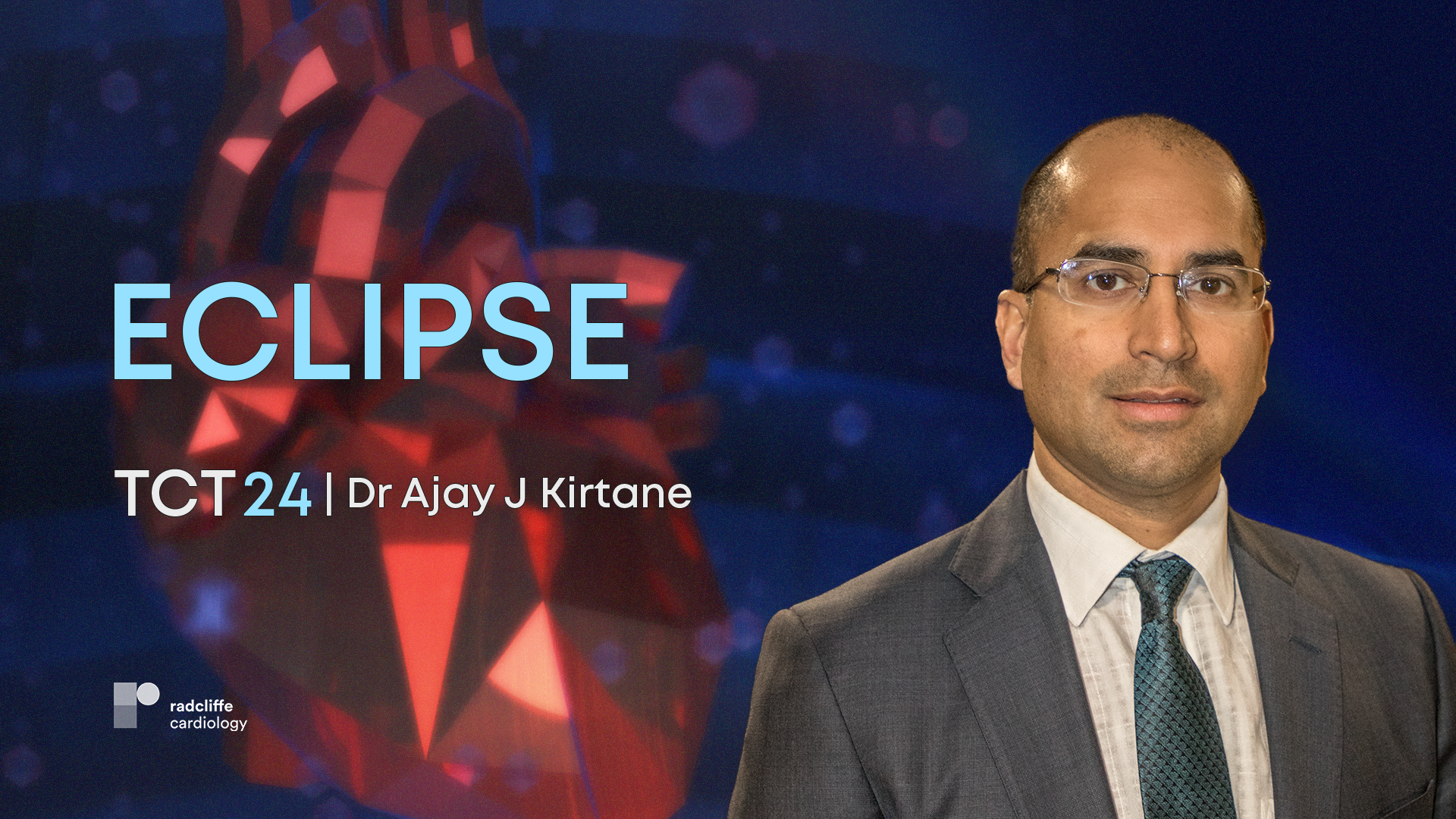
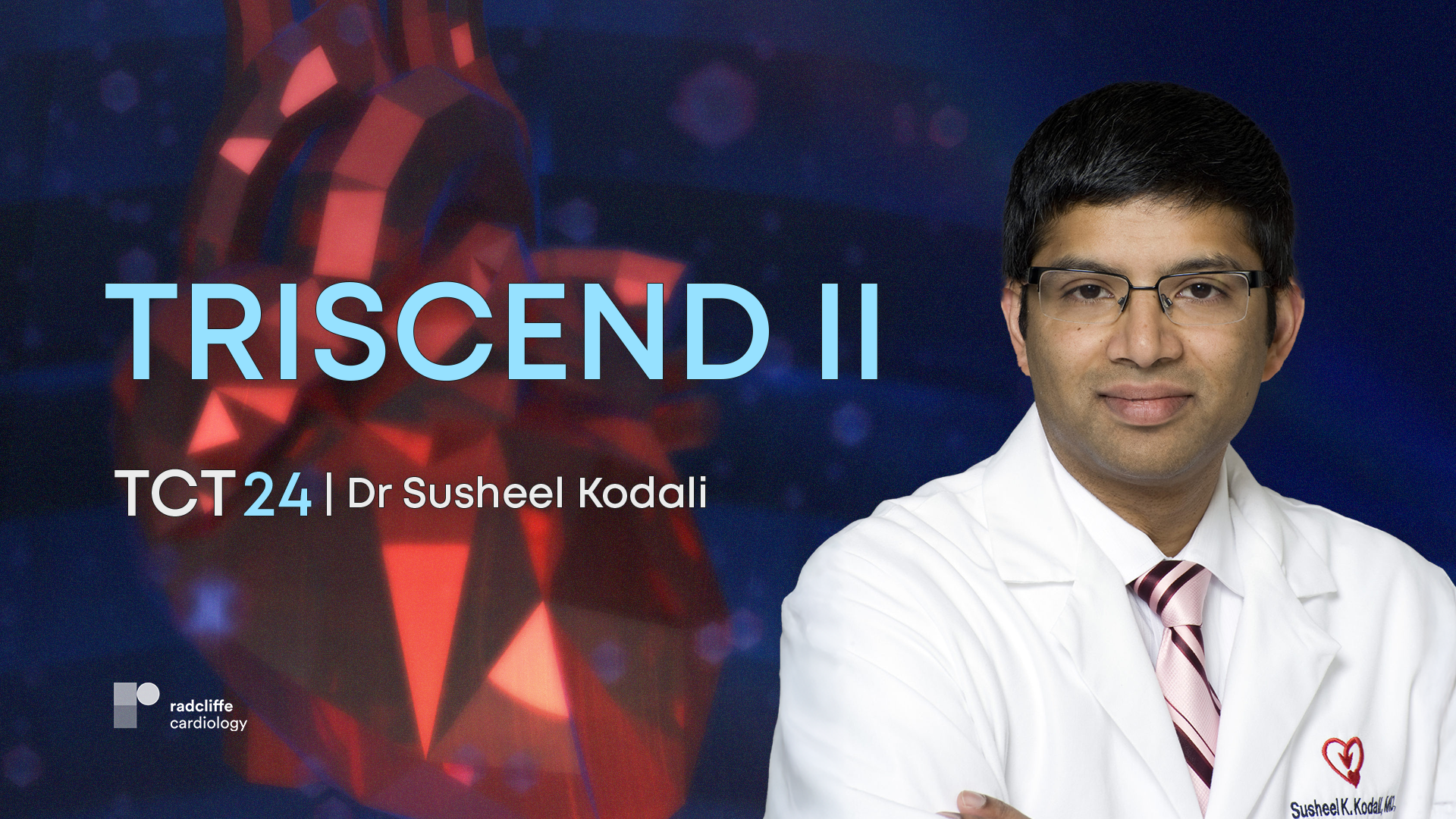
Comments